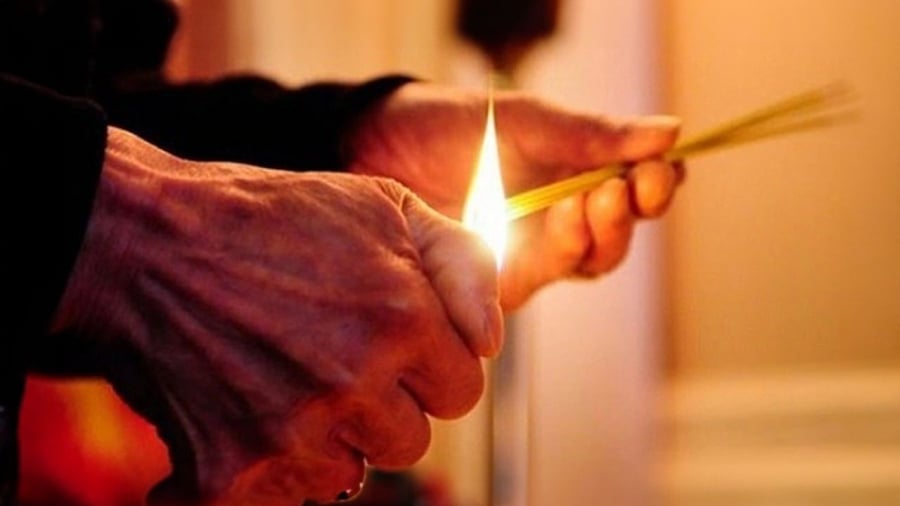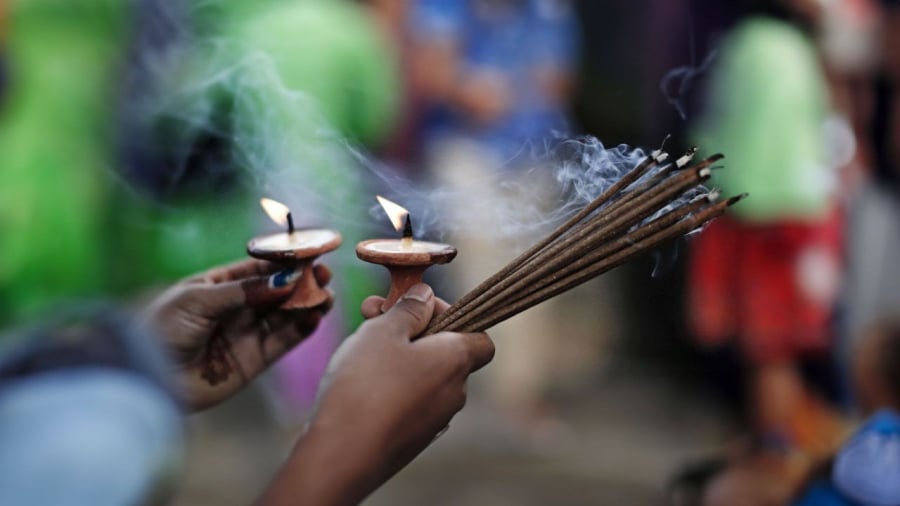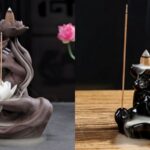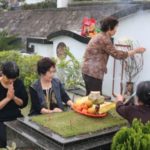Why Not Light Incense in the Evening of the Seventh Month?
According to ancient beliefs, lighting incense in the evening is generally discouraged. This is because the day is considered yang, while the night is yin. As night falls, spirits and demons can become active, and lighting incense may attract their attention.
Incense plays a crucial role in Vietnamese worship culture. The burning of incense marks the beginning of a spiritual connection between the living and the dead. It is believed that incense bridges the gap between the physical and spiritual realms, making it essential during ceremonies.
However, because incense connects the living and the dead, it was advised not to burn it at night. This is because the spiritual realm is believed to be stronger at night, and lighting incense may invite numerous wandering souls.

Incense Connects Two Worlds
In folk legends, the seventh month of the lunar calendar is when the gates of the underworld open, and King Yama allows spirits to return to the mortal realm. Among these spirits are those who are lost, without a place to go, or vengeful ghosts who met unfortunate fates. As a result, the smoke of incense can attract these spirits, causing the home to be filled with negative energy, leading to fatigue, illness, and disharmony within the family.
Additionally, in reality, the evening is a time when family members gather and return home, and lighting incense can cause a stuffy atmosphere in the house, affecting one’s health. Furthermore, performing spiritual rituals at night can make one more susceptible to negative spiritual influences, impacting one’s health, wealth, and emotional state.
Other Considerations for Lighting Incense and Taboos in the Seventh Month
While incense is an integral part of spiritual worship, it is important to be mindful and avoid lighting too many incense sticks at once to prevent fire hazards.
Avoid using chemically treated incense, as it can release toxic fumes and harm the energy field of the altar room. When lighting incense, ensure proper ventilation by opening windows or doors to prevent a stuffy environment.
Instead of blowing out the flame with your mouth, which may be considered disrespectful and unhygienic, use your hand to gently wave out the flame after lighting the incense.

Choose Clean Incense for Burning
When storing incense on the altar, ensure it stays dry and intact. At home, it is recommended to burn joss sticks instead of coil incense. Avoid inserting the coil incense into the incense burner meant for straight incense, as it is considered a major taboo. Coil incense is reserved for temples and shrines, and inserting it into the family’s incense burner is believed to bring bad luck and unrest to the ancestors’ spirits, leading to disharmony and illness within the family.
The seventh month of the lunar calendar is believed to be a time when wandering spirits are prevalent, and the negative spiritual energy is strong. Therefore, it is advised to avoid going out late at night, wearing black or white clothing, looking at mirrors or combing hair at night, tapping someone on the shoulder at night, or whistling at night.
Reference for contemplation
Should You Visit Your Ancestor’s Tomb and Offer Incense on the 15th Day of the 7th Lunar Month?
Cemetery visits and grave tending are age-old traditions that honor the deceased. The act of tending to one’s ancestors’ graves is a heartfelt way to express gratitude and remember their legacy. The seventh lunar month, often known as the Ghost Festival, presents an opportune time to pay respects by visiting and offering incense at the graves of departed loved ones.
Why You Shouldn’t Share Your Hairbrush With Anyone Else.
Introducing the art of hair grooming with a modern twist. A hairbrush is an intimate accessory, an extension of one’s self, and a tool to craft unique styles. Ancient wisdom warns against sharing brushes, and we believe it’s time to embrace a new era of personal grooming with a touch of ancient wisdom. Prepare to embark on a journey of self-expression and hair excellence.





































